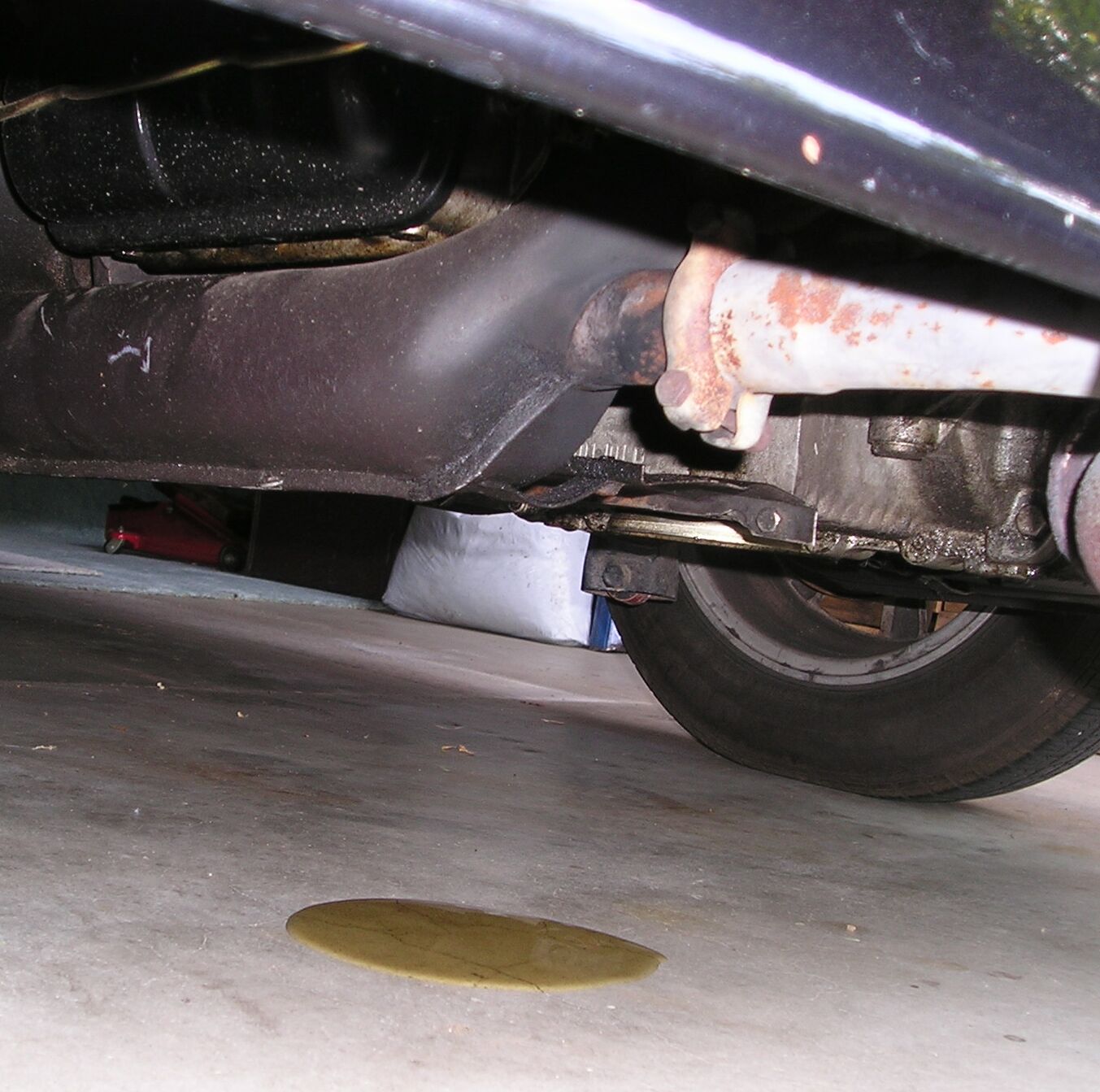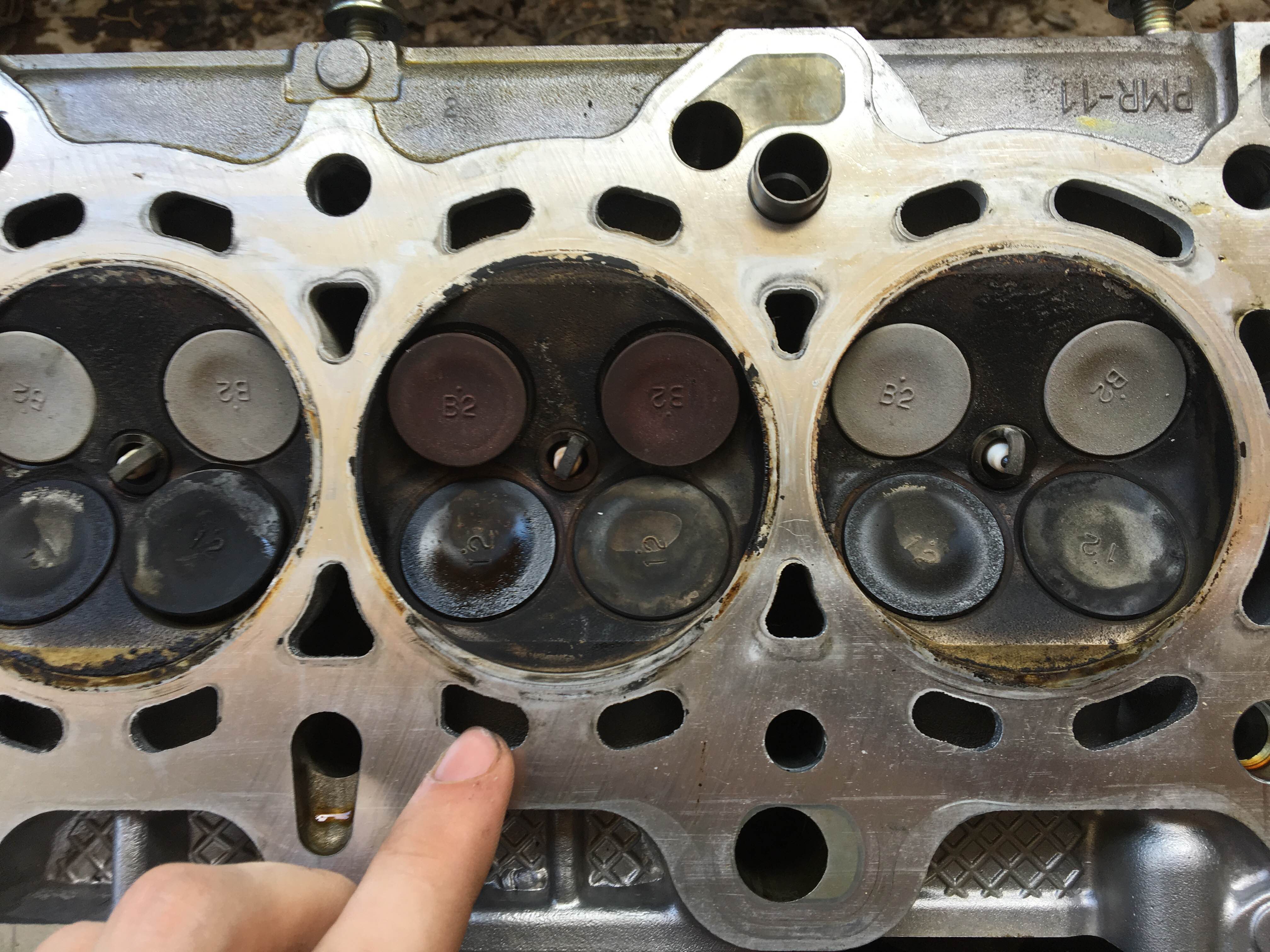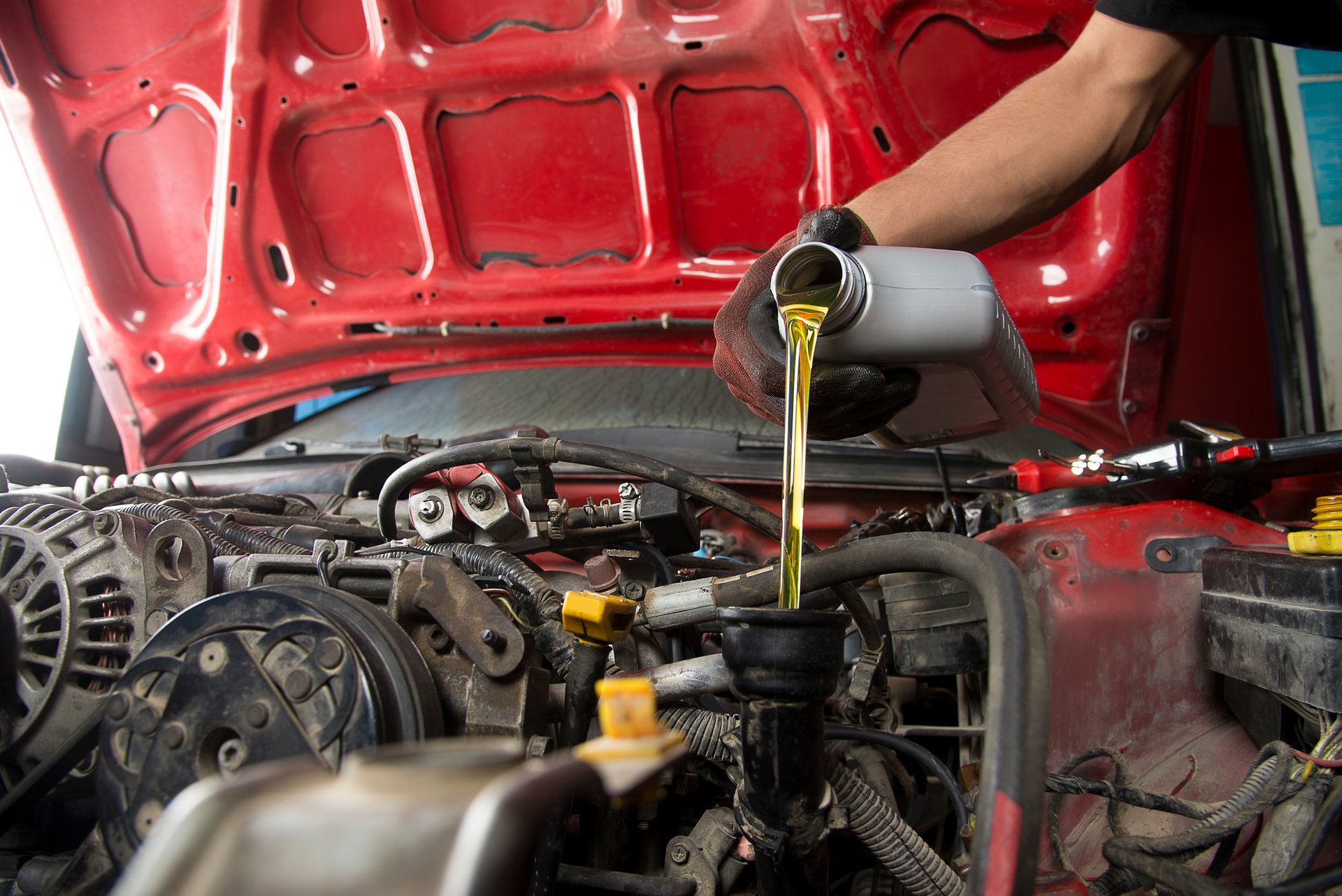Oil leaks are a major problem in the automotive industry, and they can lead to a number of serious problems. If your car is leaking oil, it’s important to get it fixed as soon as possible to prevent further damage.
Why Do Oil Leaks Occur?
Oil leaks can occur for a number of reasons, including:
- Worn or damaged gaskets
- Loose or cracked bolts
- Damaged oil filter
- Faulty oil pan
- Leaking valve cover

Your Car’s Oil Can Leak
Cars rely on oil for lubrication of the moving parts inside the engine. When there is an oil leak, it can lead to serious engine damage. Without oil, metal-to-metal contact occurs between engine parts that are in constant motion. Without the necessary lubrication, the engine can overheat and seize, resulting in costly repairs.

Dangerous Oil Leaks
Oil leaks can also be dangerous, as they can create a fire hazard. If oil leaks onto hot engine parts, it can ignite and start a fire. In addition, oil leaks can make your car’s brakes less effective, which can lead to accidents.

How to Find an Oil Leak
If you suspect that your car is leaking oil, there are a few things you can do to find the leak.
- Check the ground under your car for oil spots.
- Look for oil leaks on the engine, oil pan, and transmission.
- Use a flashlight to look for oil leaks in hard-to-see areas.

What to Do if You Find an Oil Leak
If you find an oil leak, it’s important to get it fixed as soon as possible. You can either fix the leak yourself or take your car to a mechanic.

Benefits of Stopping Oil Leakage
Stopping oil leakage can provide several benefits, not just in terms of vehicle maintenance but also for environmental and financial reasons:
- Environmental Protection: Oil Leaks can contaminate soil and water sources, posing threats to ecosystems. By fixing leaks, oil doesn’t seep into the ground or waterways, preventing further pollution.
- Reduced Emissions: Burning oil releases harmful pollutants into the atmosphere. Stopping leaks minimizes oil consumption, leading to lower emissions.
- Enhanced Engine Life: Proper lubrication is crucial for engine longevity. Oil leaks deprive engines of necessary lubrication, causing premature wear and potential engine damage.
- Cost Savings: Ignoring oil leaks can result in costly repairs or even engine replacement. Fixing leaks promptly can save money in the long run by preventing major breakdowns.

Types of Oil Leaks
There are different types of oil leaks that can occur in a car:
- Engine Oil Leak: When oil leaks from the engine, it can be due to worn or damaged gaskets, loose bolts, or a faulty oil filter.
- Transmission Oil Leak: Leaks in the transmission system typically occur from seals or gaskets that have deteriorated over time or from loose bolts.
- Differential Oil Leak: The differential, responsible for transferring power to the wheels, can also develop leaks if the seals or gaskets fail.
- Power Steering Fluid Leak: Leaks in the power steering system can result from damaged hoses, loose connections, or a faulty power steering pump.

Common Causes of Oil Leaks
Various factors can contribute to oil leaks in cars:
- Aging and Wear: As vehicles age and accumulate mileage, gaskets and seals deteriorate, becoming less effective in preventing oil leakage.
- Extreme Temperatures: Fluctuating temperatures, particularly extreme heat or cold, can cause gaskets and seals to expand and contract, leading to cracks or tears.
- Improper Maintenance: Neglecting regular oil changes and filter replacements can result in sludge buildup, putting stress on gaskets and seals, increasing the risk of leaks.
- Accidents and Collisions: Vehicle accidents or impacts can damage oil pans, gaskets, or other components, causing oil leaks.

Quick Fixes for Small Oil Leaks
While some oil leaks require professional attention, minor leaks can sometimes be temporarily addressed using the following methods:
- Tightening Bolts: Loose bolts can be tightened to reduce oil seepage. However, avoid overtightening, as this can damage the bolt or its threads.
- Oil Leak Stop Additives: Additives specifically designed to stop oil leaks can be added to the oil. These additives swell gaskets and seals, potentially reducing leaks.
- Temporary Sealants: Products like gasket sealers or silicone adhesives can be applied to small leaks as a temporary measure. Note that these solutions may not be long-lasting.
Preventing Oil Leaks
Adopting good maintenance practices can help prevent oil leaks:
- Regular Oil Changes: Fresh oil and a new filter help keep the engine clean, reducing sludge buildup that can strain gaskets and seals.
- Inspect Gaskets and Seals: During oil changes, check gaskets and seals for signs of wear or damage. Replace any compromised components to prevent future leaks.
- Avoid Overfilling Oil: Exceeding the recommended oil level can put pressure on gaskets and seals, increasing the risk of leaks.
- Use Quality Oil Filters: High-quality oil filters capture impurities effectively, preventing them from reaching and damaging gaskets and seals.
Oil Leak Detection Tips
Monitoring your vehicle can help you detect oil leaks early on:
- Check Oil Level Regularly: Dipstick readings provide a quick way to monitor oil levels. A significant drop in oil level may indicate a leak.
- Inspect Under the Vehicle: Park on a clean surface and inspect the ground beneath your car for oil spots. Fresh oil stains or drips can reveal a leak.
- Look for Visible Leaks: Use a flashlight to examine the engine, oil pan, and other areas for signs of oil seeping out.
- Pay Attention to Warning Lights: Some vehicles have oil pressure warning lights or gauges. If these indicators illuminate, it may signify an oil leak or low oil levels.
Fun Facts about Oil Leaks
Here are some interesting and little-known facts about oil leaks:
- Oil Leaks are Common: Studies estimate that a significant percentage of vehicles on the road have at least one oil leak.
- Small Leaks Matter: Even minor oil leaks can add up over time, leading to significant oil loss and potential engine damage.
- Oil Leaks and Pollution: Leaking oil can contaminate the environment, harming soil and water ecosystems.
- Oil Leaks and Fire Hazards: Oil leaks can drip onto hot engine components, creating a fire hazard.
How to Fix an Oil Leak
Addressing oil leaks requires a systematic approach:
- Identify the Source: Clean the leak area and run the engine to pinpoint the leak’s exact location.
- Gather Tools and Parts: Depending on the leak’s location, you may need tools like wrenches, sockets, and replacement gaskets.
- Tighten Loose Bolts: Loose bolts can be tightened to stop the leak. Avoid overtightening, as this can damage the bolt.
- Replace Worn Gaskets: Worn or damaged gaskets should be replaced to create a proper seal and prevent further leaks.
- Use Sealants Cautiously: Sealants can be a temporary solution, but they should not be used as a permanent fix for major leaks.
What if You Ignore an Oil Leak?
Ignoring an oil leak can have serious consequences:
- Engine Damage: Continuous oil loss can lead to reduced lubrication, causing friction and accelerated engine wear.
- Overheating: Insufficient oil levels can impair the engine’s cooling system, leading to overheating.
- Costly Repairs: Ignoring oil leaks can result in extensive engine damage that requires costly repairs or even engine replacement.
- Environmental Hazards: Leaking oil can contaminate soil and water
